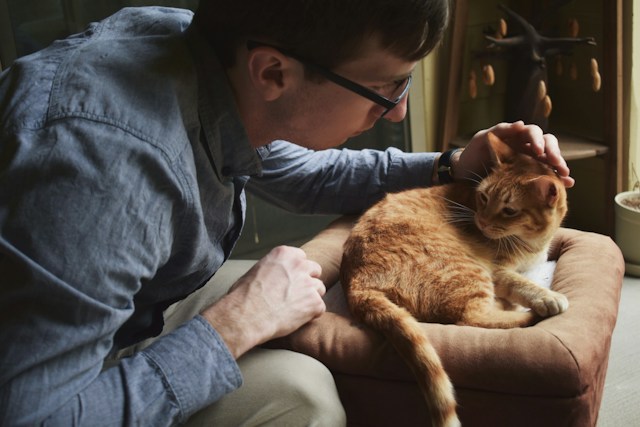When it comes to the health of your beloved pets, vaccinations are important. But does pet insurance cover vaccines? It’s only fitting to find out if pet insurance covers the shots your pet needs so you can save some money while ensuring your pet’s well-being.
In this post, we’ll explore pet insurance, shedding light on essential and non-core vaccines to help you plan financing your pet’s vaccinations.
Does Pet Insurance Cover Vaccines?
Traditional pet insurance policies won’t include coverage for vaccines because they’re under the class of routine care. These standard insurance plans generally handle illnesses and injuries.
So, when it comes to routine check-ups and vaccinations, you’ll have to pay out-of-pocket, which can sometimes lead to significant vet expenses.
If you’re looking for coverage that includes vaccinations, you’ll need to opt for a wellness plan. You can choose this plan separately or with your regular pet insurance policy.
Even within wellness plans, there might be limits on the types or quantity of vaccines covered each year. But the good news is that these plans can still help offset costs for vaccines and other preventive care expenses your pet might incur.
Essentially, you pay the veterinarian directly for the services during the visit. Then, go ahead and submit a reimbursement claim to the insurance company. This way, you can manage your pet’s routine care expenses more effectively.

Does Pet Insurance Cover Essential Core Vaccines for Your Dog?
The following vaccines are essential to your dog’s health. Fortunately, many pet insurance policies offer coverage for them.
Bordetella Vaccine
The Bordetella vaccine is a must if your dog mingles with other animals. It’s vital for dogs that stay at kennels, daycare centers, or boarding facilities.
Puppies as young as three weeks can get this shot, followed by a booster four weeks later. Depending on your dog’s lifestyle, you may need follow-up doses yearly or every six months.
DAPP Vaccine (Distemper, Adenovirus, Parainfluenza, Parvovirus)
Your dog gets this vaccine between 6 to 8 weeks old. This combo vaccine protects against distemper, adenovirus (Type 2), parainfluenza, and parvovirus. However, chat with your vet to determine the best DAPP vaccine for your furry friend.
Lyme Vaccine
If your dog enjoys outdoor adventures, consider the Lyme vaccine. It guards against a tick-borne illness that can lead to several health-threatening issues. Such as:
- kidney
- heart
- neurological problems
The vaccine consists of two shots, followed by an annual booster. Consult your vet to decide if your dog should receive this vaccine.
Rabies Vaccine
As a dog owner, you should be familiar with the rabies vaccine. Your vet will highly recommend this vaccine, and it’s often a legal requirement for dogs.
Your dog gets the rabies vaccine’s initial dose at 16 weeks, with a booster around the first birthday. Subsequent rabies shots come every one to three years, depending on your state’s regulations.
DHLPP Vaccine (Distemper, Hepatitis, Parainfluenza, Parvovirus)
This five-in-one immunization starts as early as 6 weeks old. Your puppies will need two more boosters, spaced three weeks apart, and a final dose at one year old.
Influenza Vaccine
This protects your furry friend from the canine flu. Your pet gets two doses, and it’s effective against the most common dog flu strains.
Your vet will administer boosters during yearly checkups.
Does Pet Insurance Cover Non-Core Vaccines for Dogs?
Non-core vaccines are not essential but may be necessary based on your pet’s health. These vaccines are usually not under insurance coverage.
Leptospirosis Vaccine
This guards your pet against this bacterial infection that can lead to kidney and liver issues. Consider it if your dog roams in areas prone to exposure, especially warm and wet areas. In these areas, dogs typically get the leptospirosis-causing bacteria from water contaminated with urine, stagnant or slow-moving puddles, ponds, or lakes. They can also contact it from urine-contaminated soil, bedding, or food.
Giardia Vaccine
This protects against a parasite causing digestive troubles. It is suitable if your dog plays in spaces with potential contamination. Dogs can get giardia from kennels, shelters, vet’s offices, and dog parks. The disease spreads through water contaminated with feces, rolling in contaminated soil, food, or objects.
Bordetella Bronchiseptica (Kennel Cough) Vaccine
This vaccine is essential if your dog is often in communal spaces or socializes with other dogs. This vaccine prevents this common respiratory infection.

Does Pet Insurance Cover Core Vaccines For Your Cats?
Core vaccines are essential shots that all cats should get. This is why they are often under insurance coverage. They protect against common and serious diseases, regardless of the cat’s location or lifestyle. There are two core vaccines for your cat.
Rabies Vaccine
This is similar to the rabies vaccine dogs get. The rabies vaccine is crucial for cats and might be compulsory by local regulations. Your kitten will usually receive its first rabies shot around 16 weeks. Then, they will get boosters around their first birthday and then every one to three years.
FVRCP Vaccine (Rhinotracheitis, Calicivirus, Panleukopenia)
This combo vaccine protects against Rhinotracheitis, Calicivirus, and Panleukopenia. Your kitten should receive the initial FVRCP shot at 6 to 8 weeks old. Then, they will get three booster shots every few weeks until they’re 16 to 20 weeks old. Subsequently, they’ll get a booster every three years.
Does Pet Insurance Cover Non-Core Vaccines For Your Cat?
Optional vaccines, called non-core vaccines, depend on where your cat lives and its lifestyle. You get to choose them, considering the chances of exposure to certain risks. However, these vaccines are usually not under insurance coverage.
Feline Immunodeficiency (FIV) Vaccine
If you own outdoor cats or those interacting with potentially infected felines, they’ll need this vaccine—this vaccine guards against a virus similar to HIV in humans.
Giardia Vaccine
This is Ideal if your cat visits communal outdoor spaces or areas with potential contamination. This vaccine helps prevent digestive issues caused by a parasitic infection.
Feline Infectious Peritonitis (FIP) Vaccine
If you own a good number of cats or you got your cat from a shelter, this vaccine should be on your list. This vaccine targets Feline Infectious Peritonitis and protects your feline friend from it.
Feline Leukemia Virus (FeLV) Vaccine
This is essential for cats interacting with other felines, especially outdoors. So if you let your cats spend some time outdoors with nature, this should be on your list.
It safeguards against a virus that weakens the immune system and leads to health problems.
Chlamydophila Felis Vaccine
If there is a possibility that you expose your cat to potentially crowded environments, this vaccine protects against a bacterial infection affecting the eyes and respiratory system.
Always consult your veterinarian to determine the best vaccination plan for your pet.
Get the Best Pet Insurance Plan With Truffle Paws
Your pet deserves the best care, and Truffle Paws is here to deliver unparalleled protection for their health and happiness. So, you don’t have to compromise on your pet’s well-being because of cost.
Join our family of satisfied pet owners who trust Truffle Paws to provide the finest care for their cherished companions.
Get started today and secure the best pet insurance plan for your pet!







